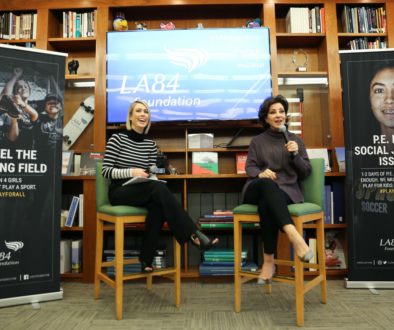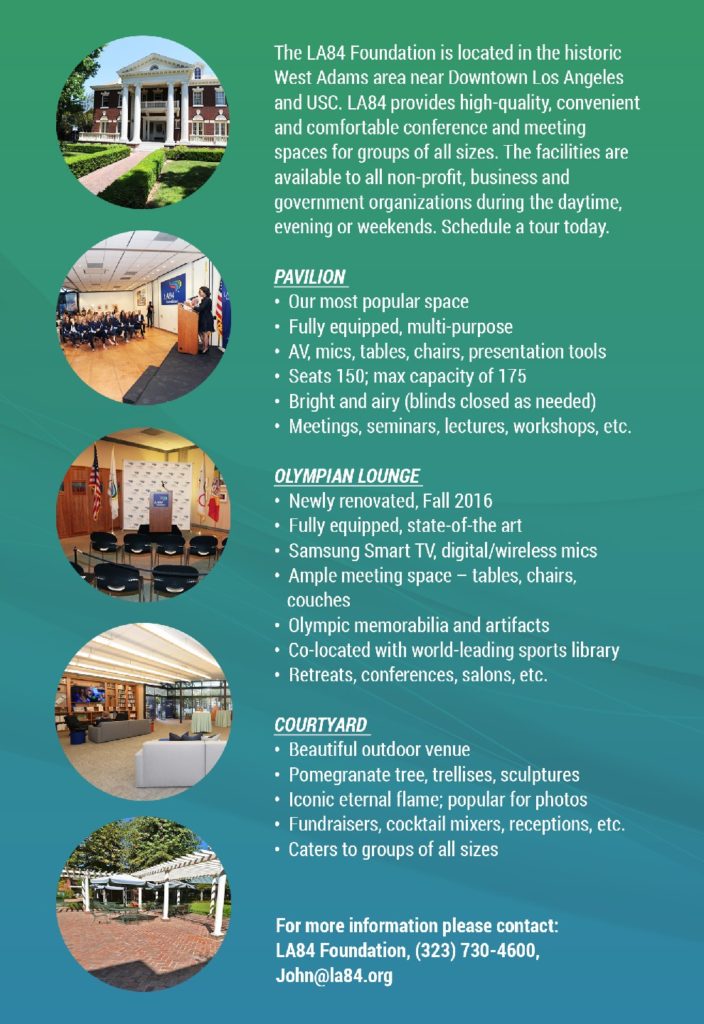Life Lessons in the Water
Editor’s Note: An LA84 grant to the USC Annenberg Institute of Sports, Media and Society funded three reporters to attend, report and write stories from the 2017 FINA World Championships in Budapest, Hungary.
By Samuel Dodge
BUDAPEST — “My mom,” said U.S. Men’s Water Polo Attacker, Johnny Hooper.
Same with Tom Dunstan, whose mom helped navigate him through a year away from their home in New Canaan, Conn., to train with the best in Southern California.
“My mom,” said Kiley Neushul, attacker for the female national team, “started me in water polo at age 7, and I hated it. But the people I’ve met helped develop my love for the game.”
Ask any one of the 26 players on the men’s and women’s U.S. national water polo teams who to thank for their success, and you’ll more than likely hear mom or dad. It’s thanks to them, many said, that youth sports bolstered skills of leadership, relationship-building and resilience.
“Youth sports helps with leadership,” said Dunstan, who asserted himself with five goals at the men’s tournament here at the 2017 FINA World Championships. “(A leader) needs to be patient, communicate what he sees and listen to know what others see.”
Humbly, Dunstan doesn’t use himself to make this point. In fact, he talks about someone out of the pool that he’s seen since her early days in the sport. “My sister (Taylor) went to Princeton,” he said. “She didn’t make it (nationally), but she now works in Santa Monica, (Calif.) and leads her office.”
While the percentage of athletes who will make a national or Olympic team is miniscule, Dunstan’s example underscores the message: youth sports builds life skills for those in and out of the pool.
“It helps to build relationships,” said Alex Obert, captain of the men’s team, echoing the sentiment from Neushul. “You don’t get that opportunity (to play youth sports) again, so it’s important to do it then.”
Obert, the 25-year old elder statesmen of a very young U.S. men’s national team, helped build cohesion and relationships on a team that ended its run in Europe with three straight victories. Before devoting his time to water polo, Obert played club basketball in his Loomis, Calif., youth league and formed long-lasting connections to his teammates. These bonds were strongly forged due to, in his words, “learning about failure, and moving through or past it.”
If you’re an athlete, you lift more, swim faster, train harder. Resiliency is an ability best sharpened through physical exertion and mental focus. Obert sees his successful friends — in all walks of life — and remarks how they absorbed fortitude in their developmental stage and found other callings.
“All of my friends from my club basketball team,” Obert said, “are doctors or in business.”
Even in the international sports community, powerful organizations see parents are the key to opening doors for children to foster these skills.
FINA First Vice President Husain al-Musallam of Kuwait praised American parents for ‘prioritizing sports’. “Facilities are not everything. Money is not everything. Parents need to understand the skills and peace that come with sports culture,” al-Musallam said.
Thanks, mom…and, hey, dad, too.




